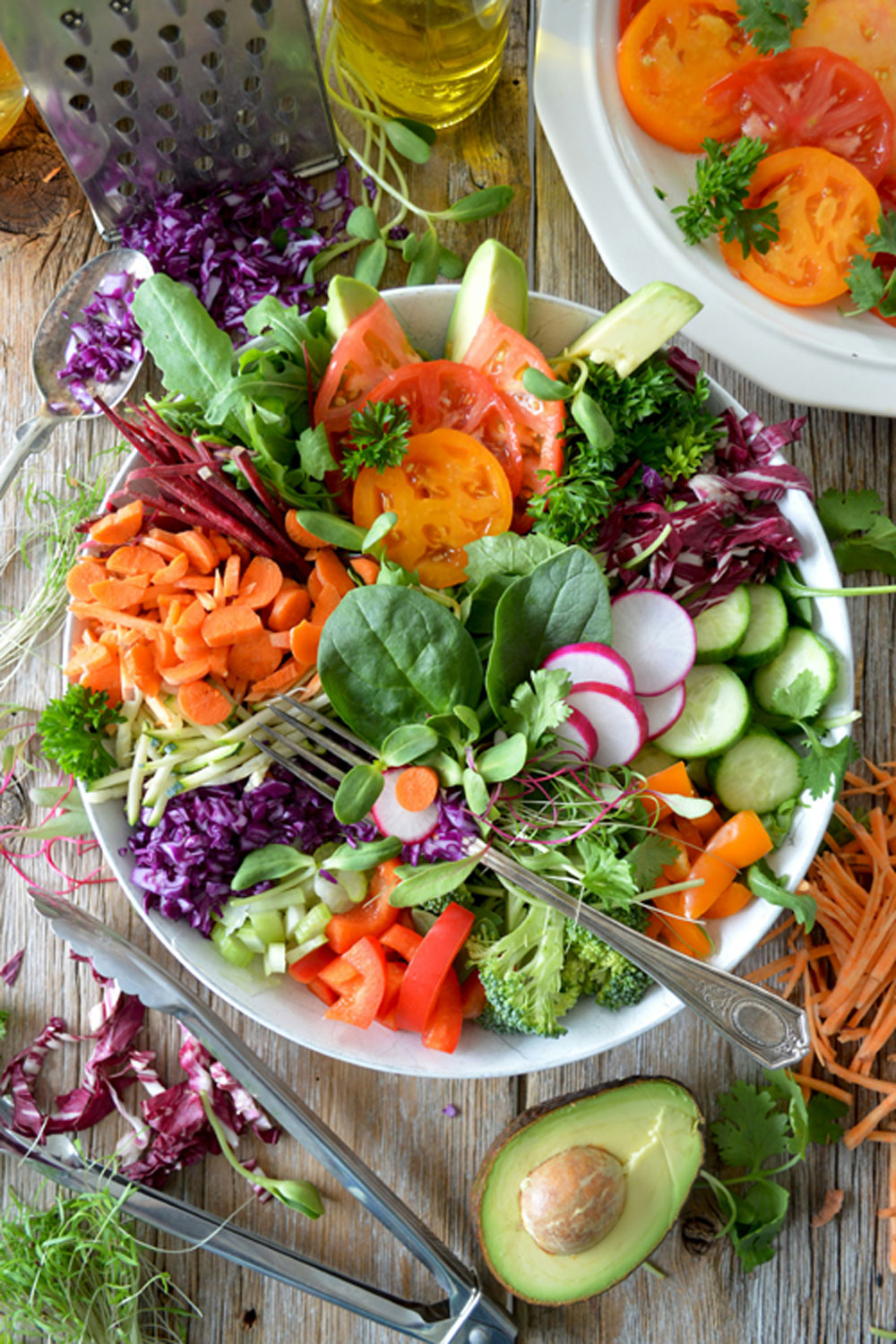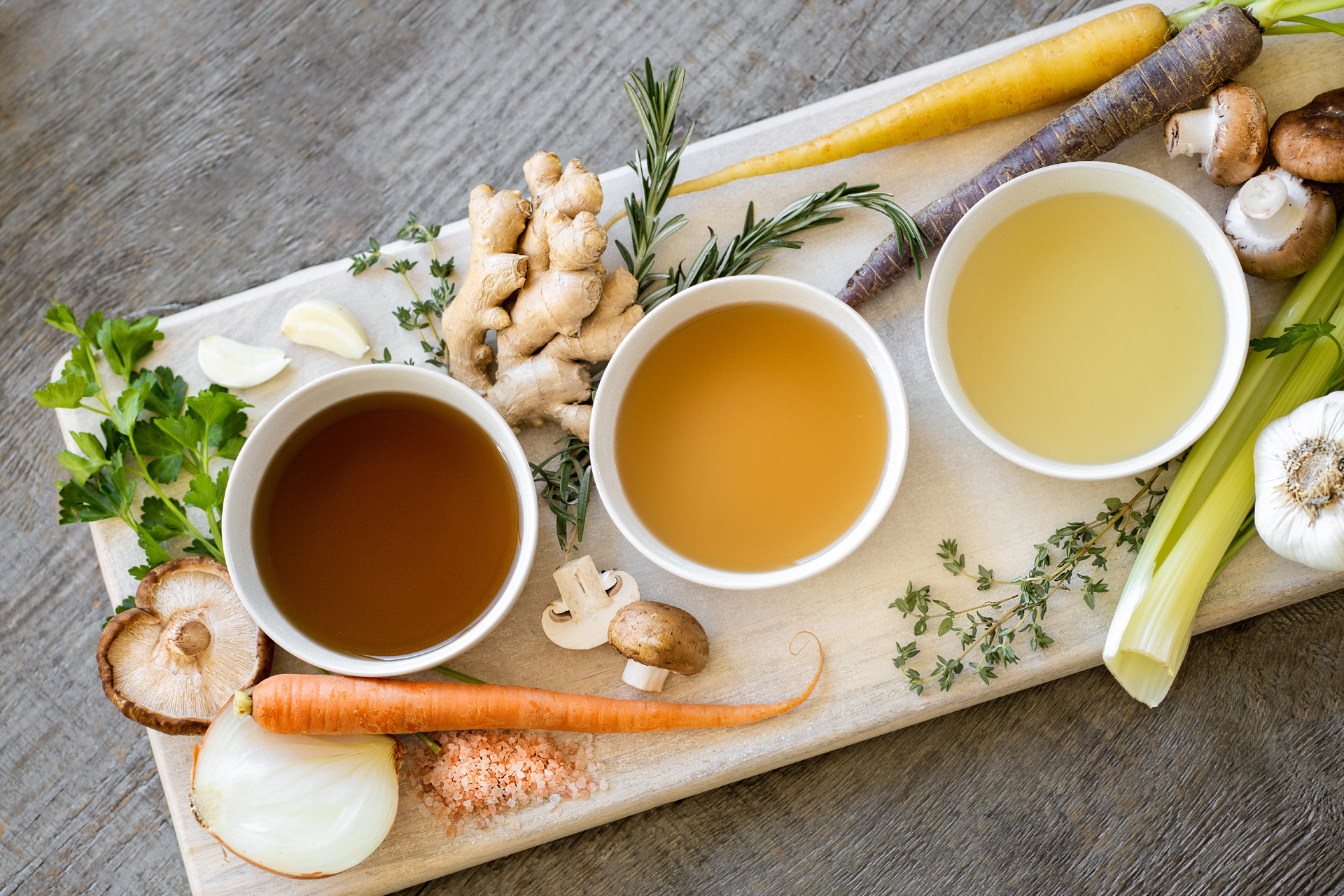
What Is An Anti-Inflammatory Diet?
By
10 months ago
How to prevent long-term inflammation through your plate
Whether it’s a swollen mosquito bite or an irritated throat from an infection, we’ve all experienced inflammation in our bodies before. However, these examples are a natural response – and often actually help the process of repair. Inflammation becomes a problem, though, when it develops over time and turns into a chronic condition, which can trigger a whole host of other health problems. A number of factors can cause the body to become inflamed, including stress and exposure to pollution, but one of the biggest lifestyle factors is what we choose to eat. So what does an anti-inflammatory diet look like? We asked nutritionist Kim Pearson.
A Nutritionist’s Guide To Inflammation – And How To Prevent It
What is inflammation in the body?
There are two types of inflammation: acute and chronic.
- Acute inflammation is the body’s immediate response to injury or infection. It occurs rapidly and usually resolves within a few days. This type of inflammation is marked by redness, swelling, heat, and pain at the site of injury or infection. The main goal is to eliminate the cause of injury, clear out damaged cells, and establish repair. Examples of acute inflammation include a cut on the skin, a sore throat from a cold, or a sprained ankle.
- Chronic inflammation, on the other hand, is a prolonged inflammatory response that can last for months or even years. This type of inflammation involves ongoing, low-grade inflammation that can damage tissues over time. Chronic inflammation is associated with various diseases and conditions, including heart disease, arthritis, and some cancers. Examples include rheumatoid arthritis, inflammatory bowel disease, and chronic infections like tuberculosis.

Unsplash
Which kinds of food cause inflammation?
Certain foods are known to exacerbate chronic inflammation and contribute to the progression of a range of different health conditions. Processed and refined sugars, commonly found in sweets, cakes, biscuits, as well as less obvious sources like cereals, yoghurts and sauces, can trigger inflammatory responses. Refined carbohydrates, such as white flour products, act in a very similar way in the body, breaking down into simple sugars rapidly.
Foods high in trans fats, found in many fried and fast foods, as well as excessive consumption of omega-6 fats, found in vegetable and seed oils like corn, soybean, and sunflower oil, can also lead to inflammation. Processed meats like sausages and bacon contain additives that can promote inflammation as do certain artificial additives, such as those found in processed snacks and pre-packaged foods. Reducing the intake of these refined and ultra-processed foods and focusing on a diet rich in anti-inflammatory foods can help manage and prevent inflammation.
What are the risks of chronic inflammation?
Chronic inflammation poses significant health risks because it can persist for extended periods, often without obvious symptoms. This ongoing inflammatory response can damage healthy cells, tissues, and organs, leading to serious health conditions. One major risk is the development of cardiovascular diseases, including heart disease and stroke, as chronic inflammation can contribute to the build-up of plaque in arteries. It is also linked to an increased risk of type 2 diabetes and several types of cancer due to the continuous damage and repair of tissues, which can lead to genetic mutations. Neurodegenerative diseases such as Alzheimer’s disease have also been connected to prolonged inflammation in the brain. Chronic inflammation is a key factor in a number of diseases, highlighting the importance of reducing inflammation through diet and lifestyle choices.

What is an anti-inflammatory diet?
An anti-inflammatory diet focuses on consuming foods that reduce inflammation in the body and avoiding foods that can trigger or worsen inflammation.
Which foods should be included in an anti-inflammatory diet?
- Key components of an anti-inflammatory diet include fruits and vegetables, which are rich in antioxidants, vitamins, and minerals. Plant food like berries, leafy greens, tomatoes, and cruciferous vegetables like broccoli and cauliflower are particularly beneficial.
- Healthy fats, especially omega-3 fatty acids, help reduce inflammation and can be found in sources like oily fish (such as wild salmon, mackerel, and sardines), nuts (such as walnuts and almonds), seeds (flaxseeds and chia seeds), and olive oil.
- Lean protein sources, such as organic poultry, fish, beans, and legumes, are recommended, with fish rich in omega-3 fatty acids being particularly beneficial.
- Many herbs and spices, such as turmeric, ginger, garlic, cinnamon, and rosemary, have anti-inflammatory properties so adding these to your diet can provide anti-inflammatory benefits. Green tea is known for its antioxidant properties and can help reduce inflammation and provide other health benefits.
- Probiotic foods, which support gut health, can also help manage inflammation; good choices include kefir, sauerkraut, kimchi, and other fermented foods.
Kim Pearson qualified as a nutritionist at London’s Institute for Optimum Nutrition in 2008 and has worked in the field of nutrition and health for 20 years. She specialises in weight loss, metabolic health, and longevity. Follow Kim on Instagram @kimmypearson and find out more about her work at kim-pearson.com.






